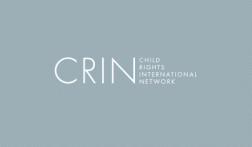What is it?
The Human Rights Council (HRC or Council) is the main human rights arm of the UN. Based in Geneva, its role is to monitor and protect fundamental human rights and freedoms around the world.
It holds public meetings to review the human rights performances of States, adopt new standards and promote human rights. These meetings include its three regular sessions each year (usually held in March, June and September), as well as the special sessions held when an issue needs urgent attention.
The Council is a subsidiary of the General Assembly and was created in 2006 to replace the Commission on Human Rights.
It has 47 members, which come out of the 193 Members States to the UN. Each State is elected by an absolute majority (so 50 per cent plus one) of the General Assembly, and are selected on the basis of their commitment to human rights. Each term lasts for three years and no State can be a member for more than two terms. As a form of diplomatic pressure and example of 'naming and shaming', the General Assembly (by a two-thirds majority vote) can suspend a membership to the Council for gross and systematic human rights violations (for instance, the General Assembly suspended Libya from the Council in 2011).
It’s important to remember that States have to campaign to get onto the Human Rights Council. If your country is on the Council, or wants to be, you can use it to put extra pressure on them to respect human rights. Additionally, if you feel a current member of the Council does not deserve to be there because of its human rights violations, you can try to lobby the Council. See the International Service for Human Rights (ISHR) for more information.
What does it do?
The Council holds three sessions per year, with one in March (four weeks), June (three weeks) and September (three weeks). It also has the ability to hold special sessions (for example, to tackle a specific human rights crisis) upon request of a Council member with support of one-third of the Council.
Importantly, the Council holds the Annual Day on the Rights of the Child during its March session each year. This is the only day where children’s rights feature exclusively on the Council’s agenda, but of course since all human rights apply equally to children, the Council can still discuss children’s rights throughout the year.
The Council also houses all the UN’s special procedures and the Universal Periodic Review.
Children’s rights advocacy at the HRC
Since the HRC is the UN’s main human rights monitoring body, it is imperative that children’s rights feature in its work. CRIN co-ordinates a group of NGOs who’s aim is to get children’s rights "mainstreamed" across the UN (i.e. systematically considered across all its work), and the HRC is a key target.

